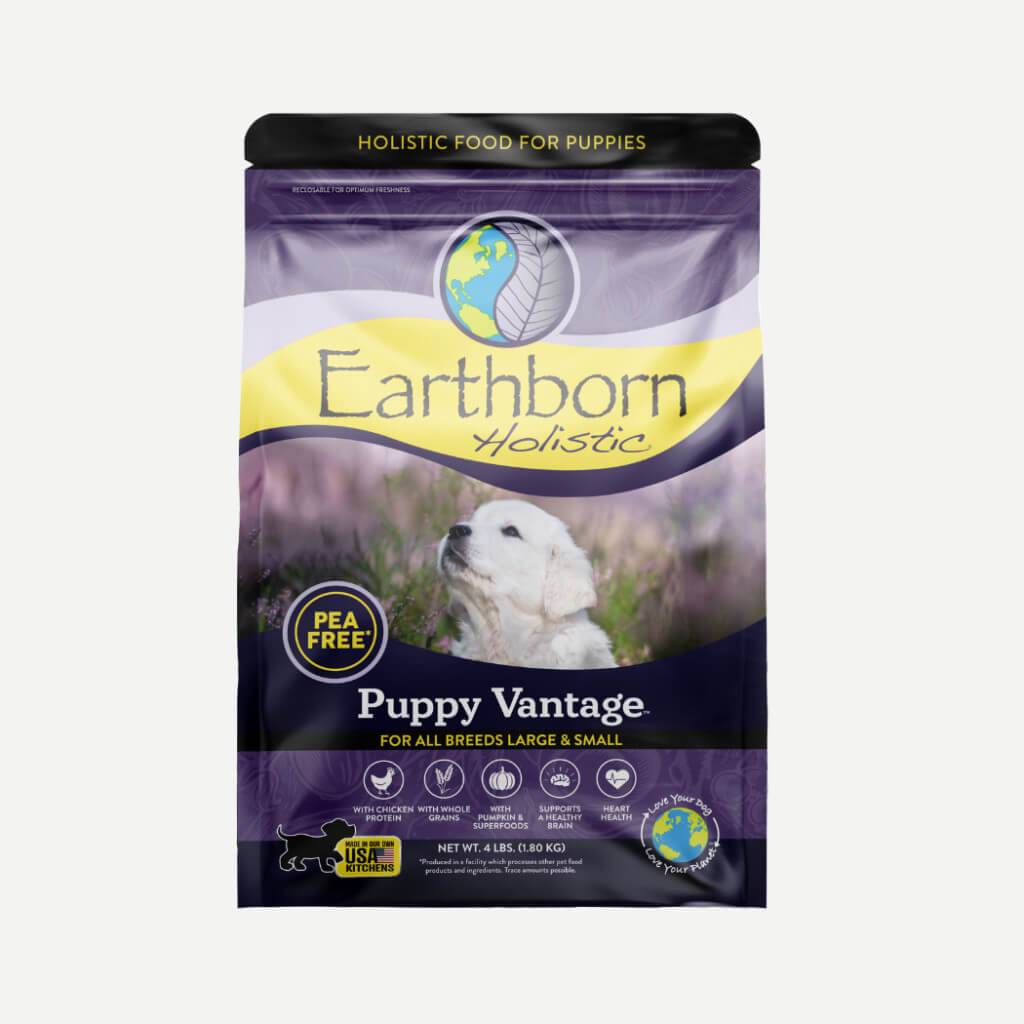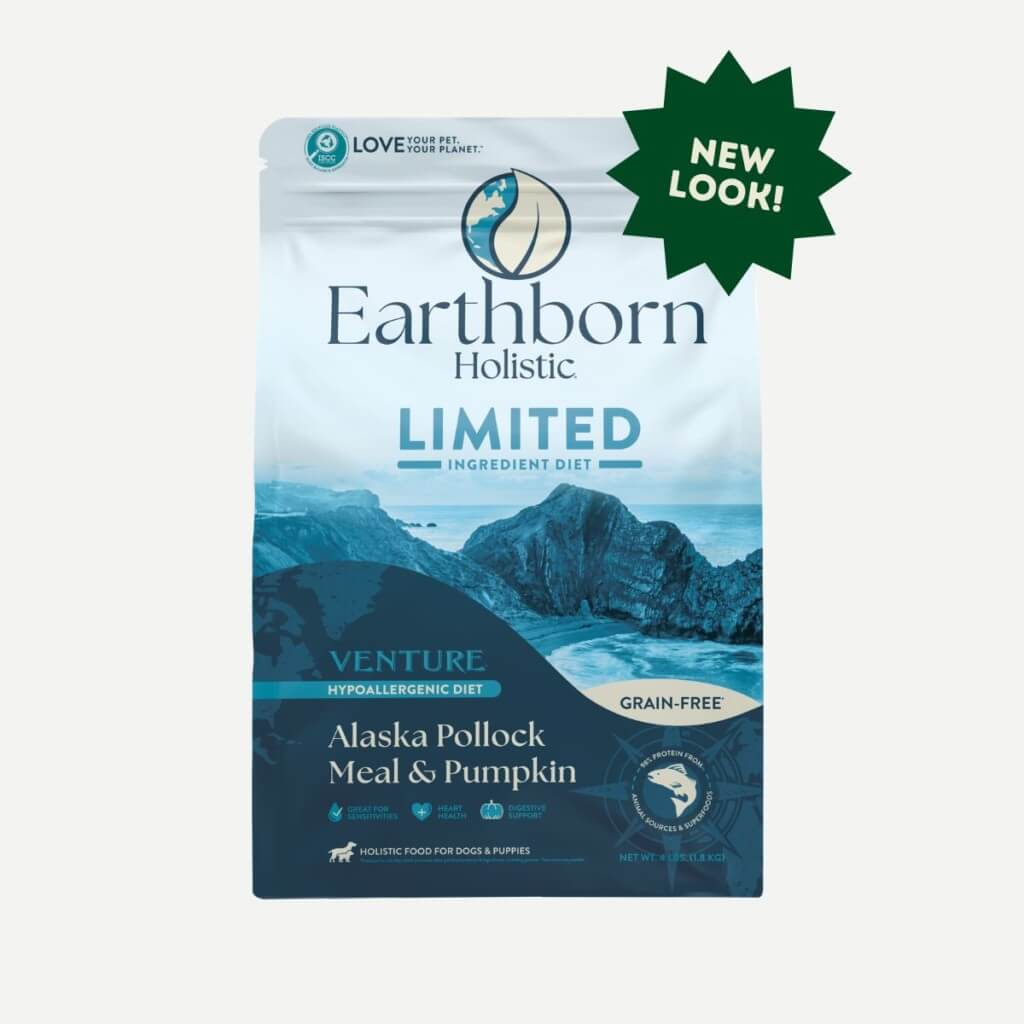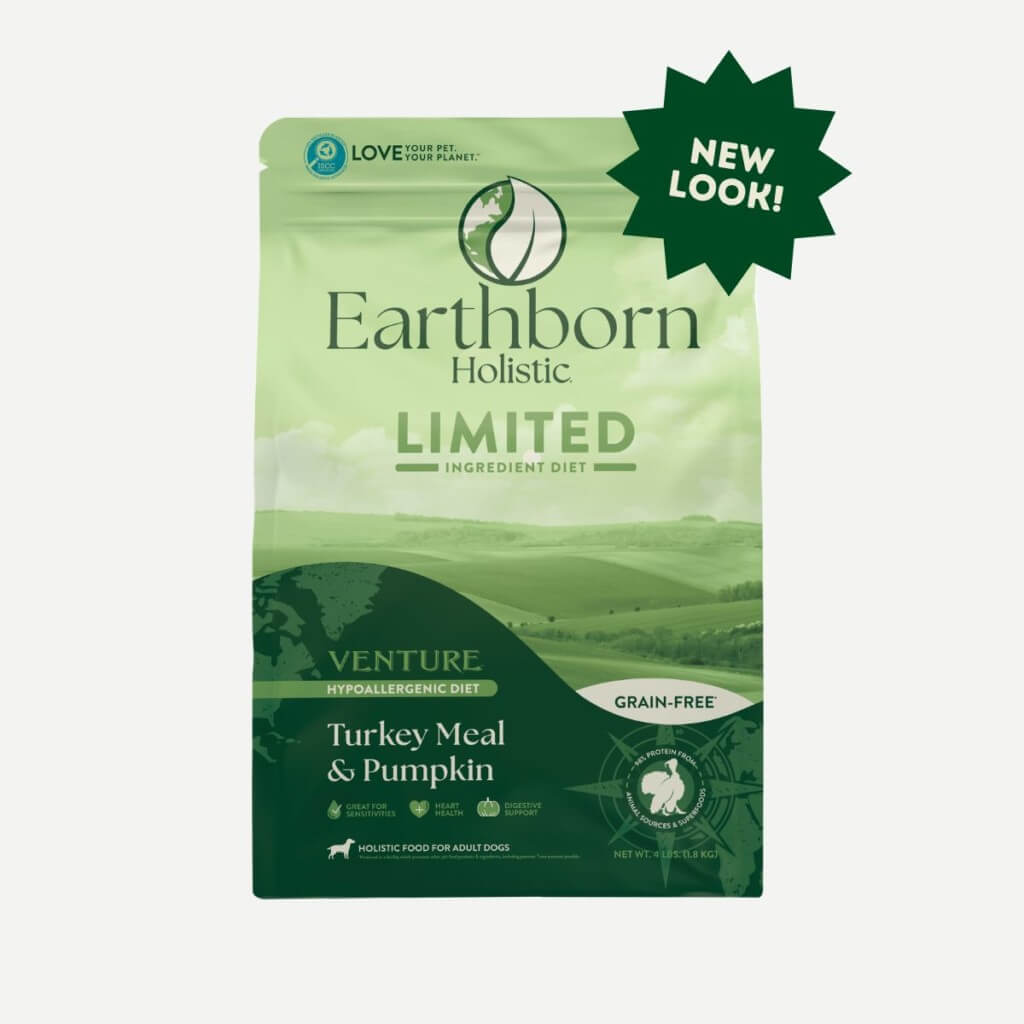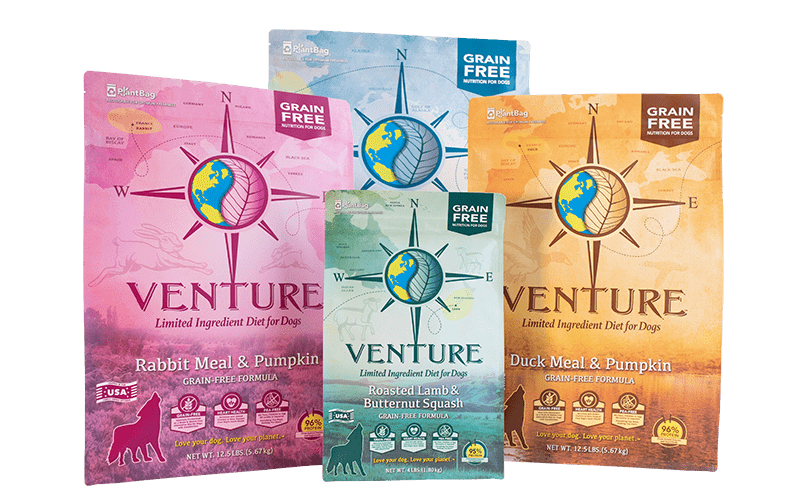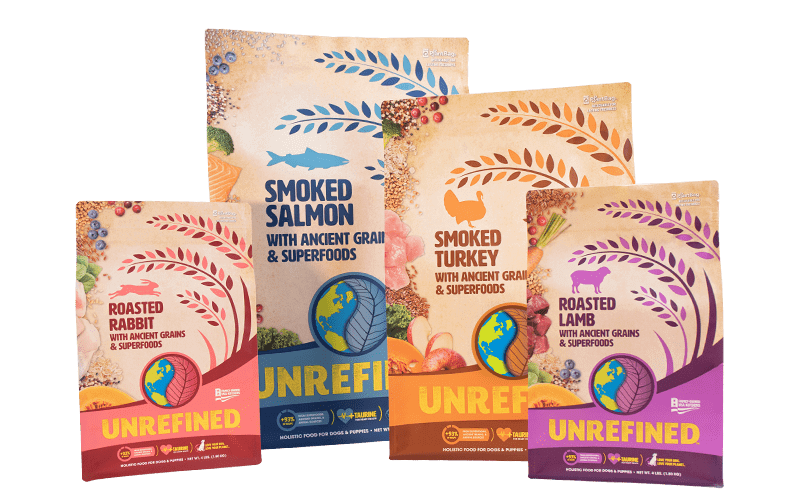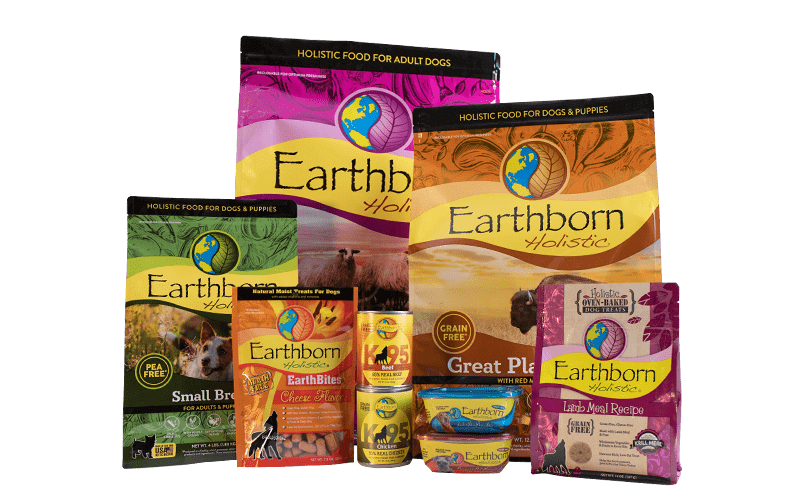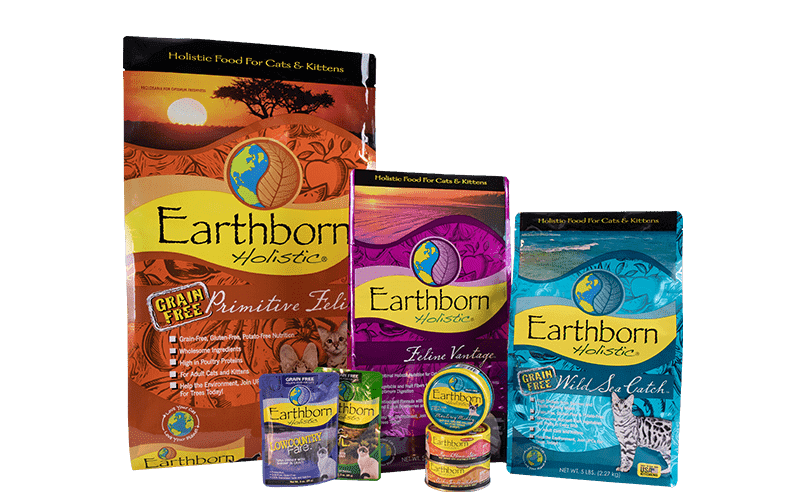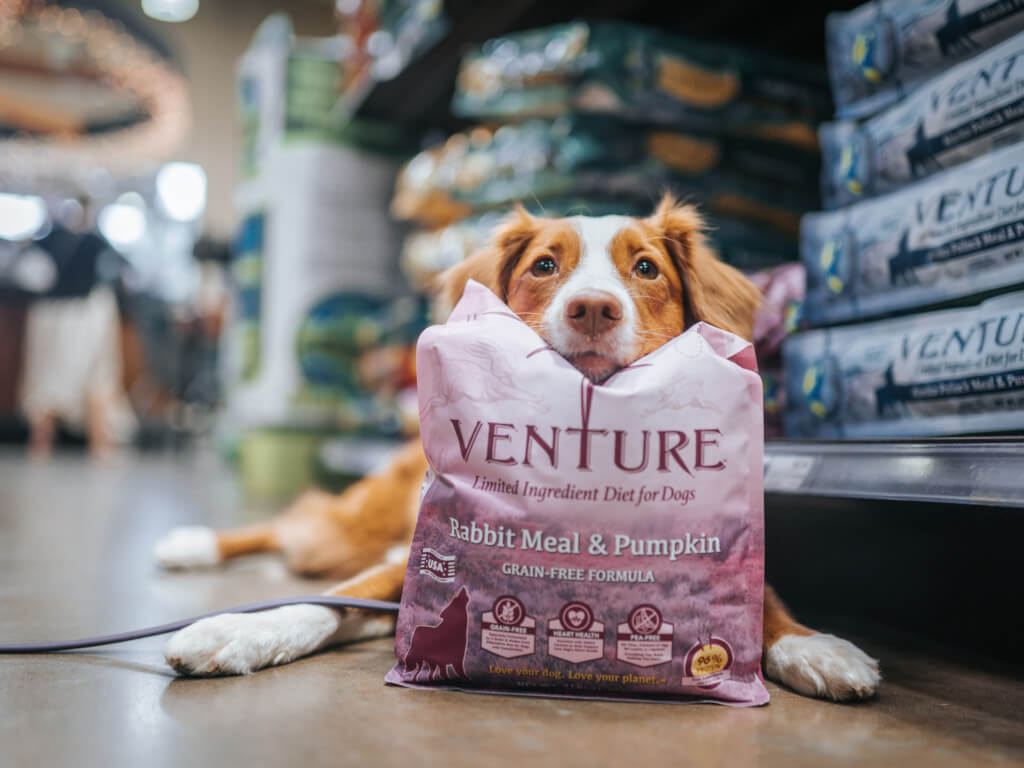
As a dog owner, choosing a dog food can be super overwhelming, especially if your furry companion has a long list of nutritional needs or allergies. However, you’ll find that these nutritional needs may actually make it easier to find a high quality dog food since it will help you narrow down your options fairly quickly. Once you narrow down your options, choosing the right holistic dog food for your dog or puppy is much easier.
What Is Holistic Pet Food?
Another way to look at holistic dog food is “whole dog nutrition”. Natural dog food recipes take into account the nutritional needs of the dog as a whole and are crafted with your dog’s overall health at top of mind. Whether it’s essential amino acids needed for proper brain development or vitamins and minerals to support your dog’s healthy body function, a holistic diet supports your dog’s health as a whole.
Holistic Grain- and Gluten-Free Dog Food
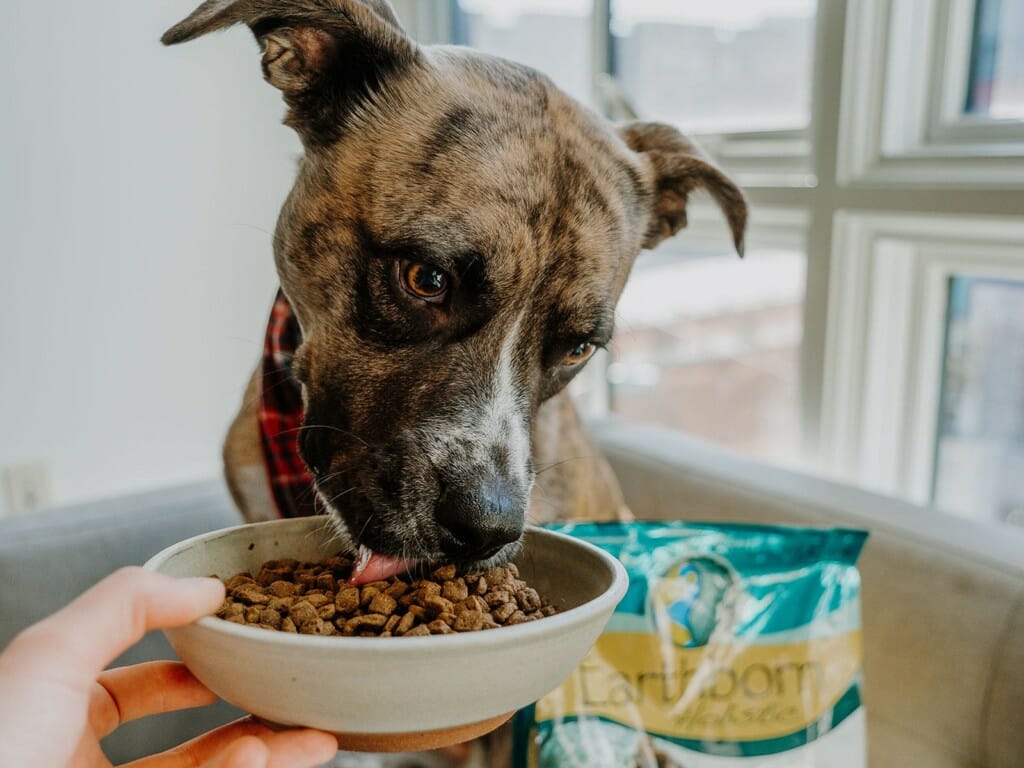
One of the main benefits of grain-free dog food is that some dogs have a gluten or grain allergy. Grain and gluten allergies in dogs aren’t super common, but they do exist so it’s important that pet’s with those circumstances have options for food with high quality ingredients and nutrition.
How Do I Know if My Dog Is Allergic to Grains? While it can be difficult to figure out if your dog is actually allergic to grains, the good news is they most likely aren’t. Food allergies in dogs aren’t as common as you might think. Food intolerances, on the other hand, are more common. But what’s the difference? Here’s the answer according to Dr. Anne Huss, Earthborn Holistic’s Director of Nutrition Services:
“A food allergy is a result of a flaw in a pet’s immune system and are an abnormal reaction to normal foods triggered by an animal’s immune system. In some cases, a pet’s immune system can misidentify or misjudge safe compounds (usually proteins) as a threat which causes the body to attack–leading to a food allergy.
“A food intolerance, on the other hand, can be either an unusual reaction to normal food or normal reactions to abnormal foods that does not trigger a response from the immune system. For example, if your dog happens to get into the trash and eats spoiled food, the resulting vomiting and/or diarrhea would be considered a normal reaction to an abnormal food not due to a response from the immune system.”
So while the odds of your dog having a grain allergy is low, it is still possible. For cases like these, a grain free limited ingredient dog food could work wonders for your dog. Limited ingredient diets are made for dogs with allergies in mind and are made with ingredients and proteins that dogs are generally less likely to have a reaction to. Our Venture Duck Meal & Pumpkin recipe, for example, is a limited ingredient diet that is made with high quality duck meal and uses ingredients like pumpkin instead of grains to support digestion and also has sunflower oil to help support healthy skin and coat. Other unique protein options in our Venture line include rabbit, roasted lamb, smoked wild boar, Alaska pollock, and smoked turkey.
That being said, even if your dog doesn’t have a grain allergy you may still wish to feed your dog a grain free diet. If this is the case, we have a whole line of other grain-free diets aside from our limited ingredient options. For example, Great Plains Feast is a popular grain-free option made with bison and beef proteins.
Whole Grain Dog Food
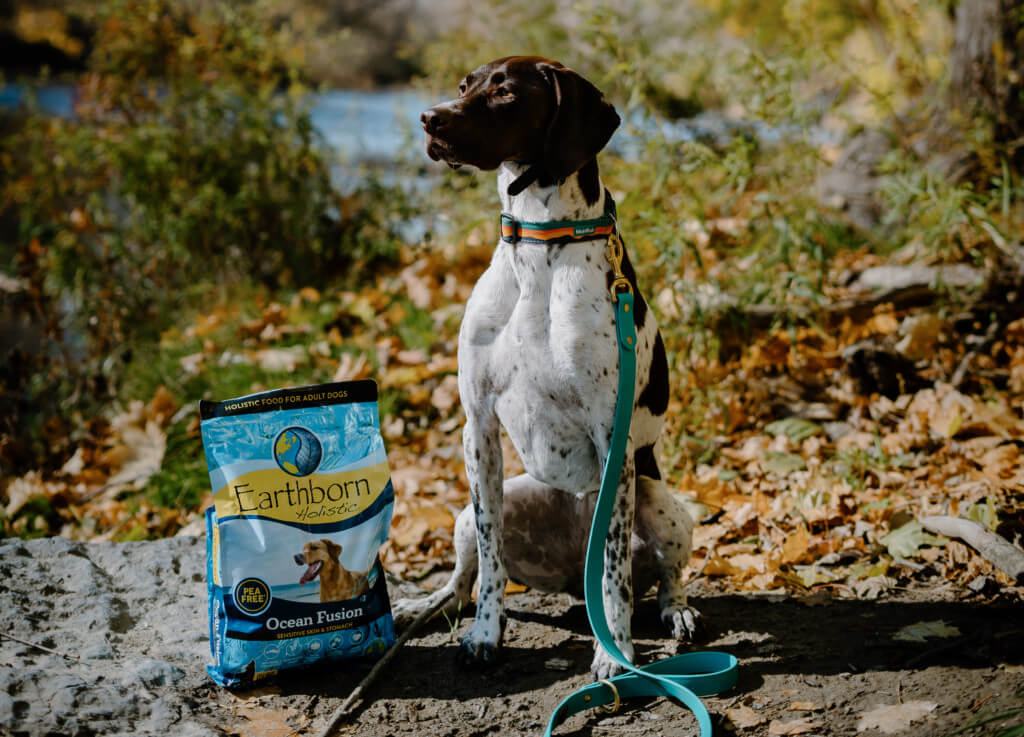
Alternatively, you may wish to feed a whole grain dog food instead. Ingredients like oats or barley in dog food are very common and make for great sources of fiber. Fiber is important for dogs in the same way it is for humans and helps with digestive health. Some other benefits of whole grain include improved skin and coat health with the help of fatty acids, added protein, and other vitamins and nutrients found in grains.
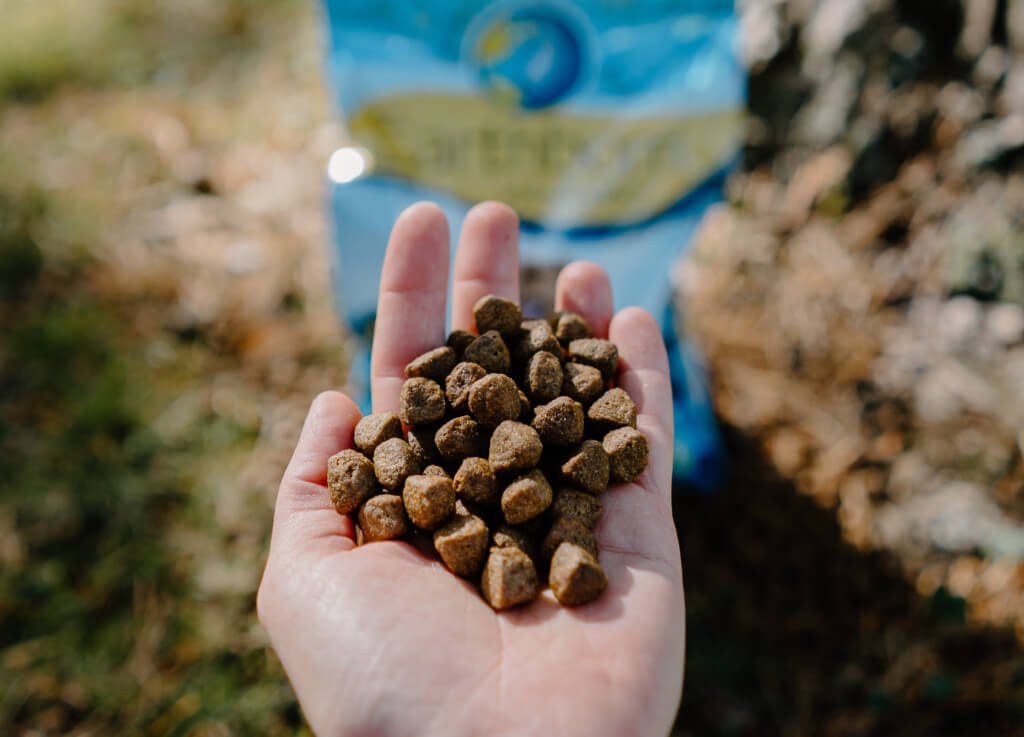
You might be wondering exactly what is considered grains in dog food. Whole grains and ancient grains are umbrella terms for a variety of ingredients: Whole wheat, brown rice, barley, oats, millet, quinoa, sorghum, and rye. While all of these are options that are commonly found in dog food, some are better than others. For example, you’ll never find corn, wheat, or soy on the ingredients list of any of our Earthborn Holistic, Venture, or Unrefined recipes. Instead of these ingredients that are commonly considered fillers, you’ll find things like oatmeal, brown rice, and quinoa added to our whole grain recipes.

Grain-Free vs Grain Dog Food
When it comes to whether or not you should feed whole grain or grain-free dog food, it’s really up to preference. If you’re unsure which type of recipe would work best for your dog, we always recommend visiting your vet to have a conversation about what ingredients and foods they would recommend for your dog given their age, size, lifestyle, and environment as these are other factors that should be considered when choosing a food.
Wet vs Dry Dog Food
In some cases, wet dog food works better for dogs. Whether you have a furry family of picky eaters or are in need of food for senior dogs, wet dog food has many great benefits. If you have a picky eater on your hands, you might consider using wet food as dog food toppers. By using it as a topper, you can typically entice your pet to eat due to the difference in texture in flavor that you’re adding to their bowl. Pair it with a high protein dog food to make sure your picky pup is getting all of the energy and nutrients they need and you’ll have them eating in no time.
When it comes to senior dogs, wet dog food is very popular and in many cases recommended for senior dogs. As dogs age, they become more susceptible to dental issues which can make it difficult for them to chew crunchy kibbles. For this reason, wet dog food is a great alternative to foods that older dogs may have a harder time chewing. In these instances, we typically recommend a lower-calorie wet food like our Duke’s Din Din recipe.
That being said, seniors also commonly benefit from a weight control recipe. Low-calorie and low fat dog food recipes are also often fortified with glucosamine and chondroitin sulfate which helps with joint health–another aspect of dog’s bodies that has a tendency to decline with age. So while your senior may not need weight management, they can still benefit from recipes like our Weight Control formula. Coming in at only 315 kcal/cup, this low calorie, grain inclusive dog food formula is great for seniors if they can handle crunchy kibbles.
Holistic Dog Food for Small Breeds
If you have a small breed dog, there are specific nutritional requirements you’ll want to look for first, as small breeds have special nutritional needs for their small bodies. For starters, you’ll need a food that is higher in calories.
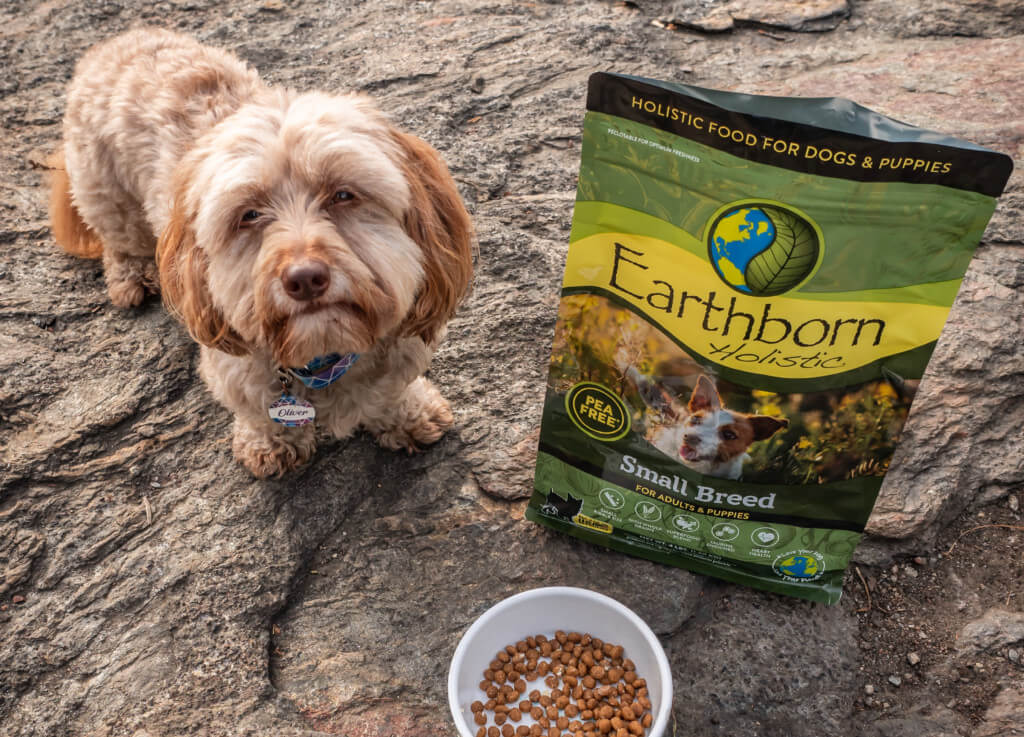
Small breeds typically have increased energy and faster metabolisms compared to standard or large breed dogs, so they need a higher calorie count to keep up with the calories they burn on a daily basis. For example, our Earthborn Holistic Small Breed recipe comes in at 400 kcal/cup. When compared to other recipes like our Weight Control recipe which has only 315 kcal/cup, this is a huge calorie difference. Making sure you feed your small breed the perfect portion of calories everyday is super important to keep their little bodies up to speed.
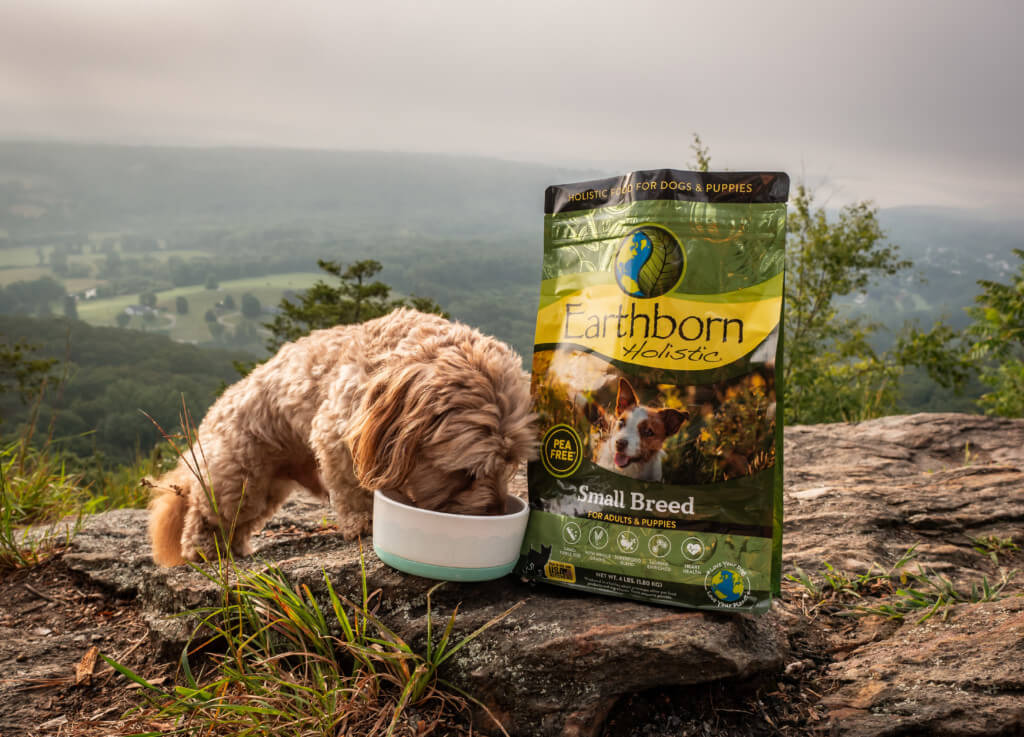
Additionally, recipes made for small breed dogs also have smaller kibble sizes. With smaller dogs come smaller mouths, so bite size kibbles are super important to ensure your dog can eat their food safely and without choking on larger pieces. Make sure if you’re looking at recipes that aren’t made specifically for small breeds that you take into consideration the kibble size of the recipe to avoid any issues.
If you’re in search of a grain free recipe for small breeds, our Coastal Catch recipe has a similar kibble size to our Small Breed formula and is made with tasty fish proteins.
Holistic Dog Food for Large Breeds
On the opposite end of the spectrum are large breeds. With large breed dogs, joint health and bone health are super important.
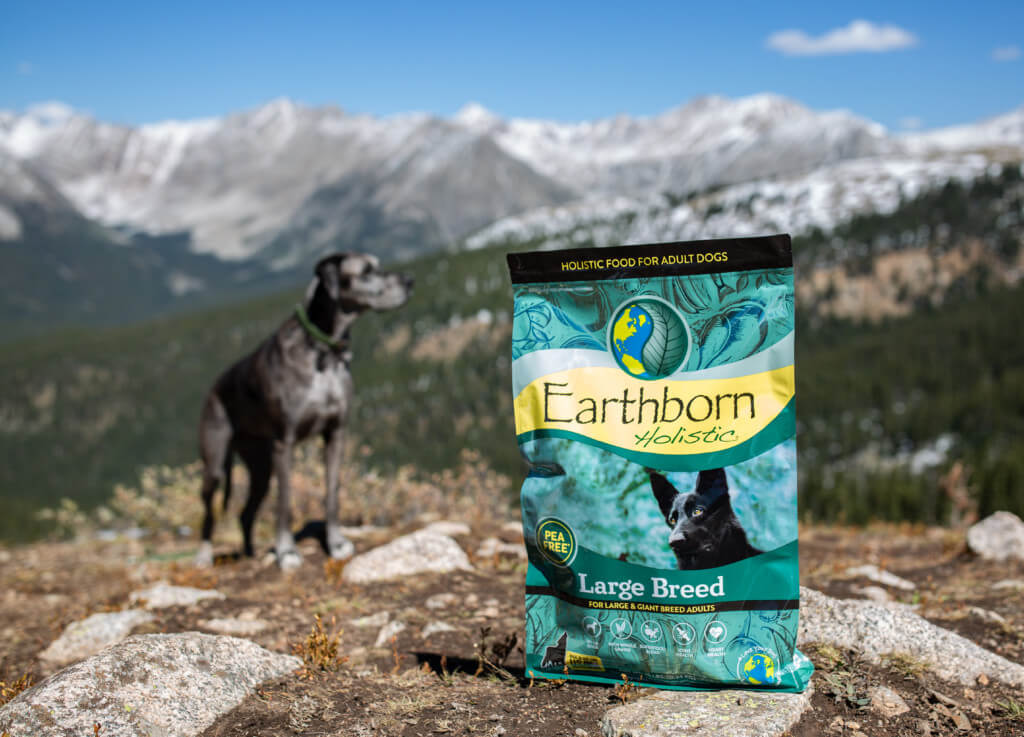
When looking for a food for large breeds, finding a food that’s fortified with glucosamine and chondroitin sulfate is the best option to help your dog grow. Because large breed dogs grow so quickly, their bones and joints perform best with supplements like glucosamine and chondroitin.
Muscle retention is another factor in the health of large breed dogs. Because of this, it’s also important to look for L-Carnitine in the guaranteed analysis of large breed dog foods. L-Carnitine helps to build muscle mass and supplies large breeds with the nutrients they need.
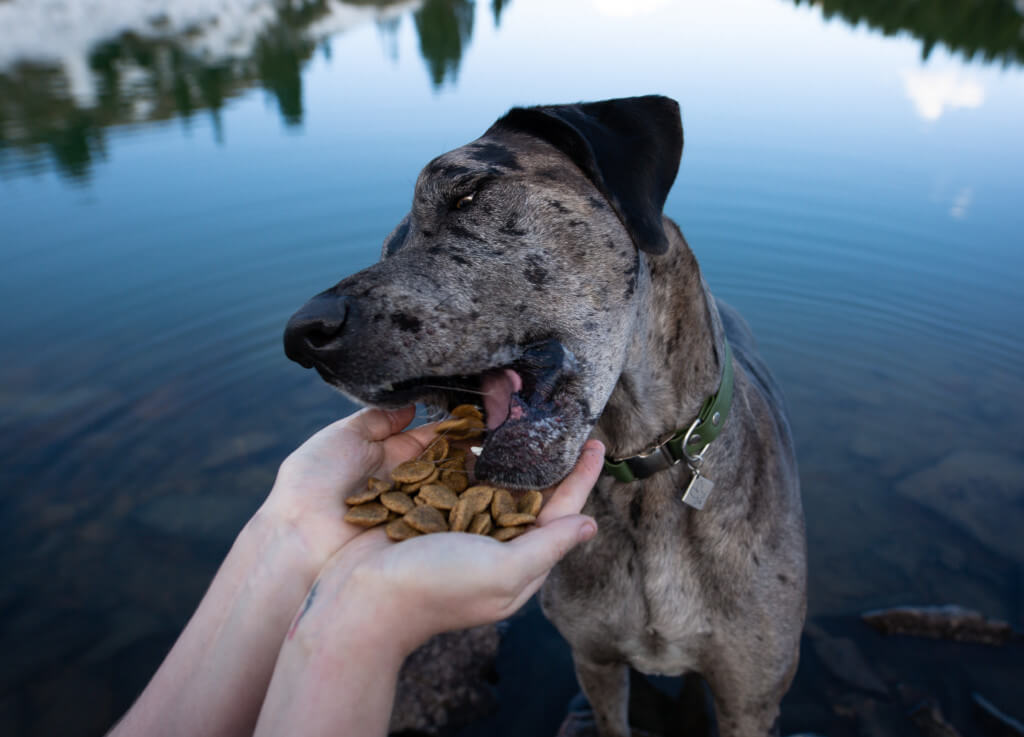
Proper joint and muscle support is a huge factor in increasing the longevity of your large breed’s life, as neglect of these areas can cause quicker deterioration of their joints and muscles that are already under more stress due to your dog’s weight and size. Luckily, our Large Breed recipe has all of these essential nutrients and more. Fortified with L-Carnitine, glucosamine, and chondroitin sulfate, this recipe is made with high quality chicken meal, nutrient-rich superfoods, and no fillers, making it a great option for your large breed dog.
Food for Dogs With Sensitivities
Stomach issues in dogs and dogs with allergies are becoming more and more common. Thankfully, foods for dogs with sensitivities and allergies are becoming more common as well. Limited ingredient diets are growing in popularity for their shorter ingredient lists and easily digestible protein options. They’re often a great solution for dogs who have allergies or sensitivities to different proteins or ingredients commonly found in dog food.
Our Venture line is a range of limited ingredient recipes specially formulated for dogs with allergies or sensitivities. Each of the six recipes are made with unique proteins like rabbit, duck, and wild boar and are great options if your dog struggles with more typical proteins like chicken. Additionally, these recipes are made with fewer ingredients that are often associated with allergies or sensitivities–no grain, gluten, chicken, eggs, potatoes, peas, lentils, or legumes and never any artificial colorants, fillers, preservatives, or by-products.
If protein is more of the issue and you’d like to try a grain-inclusive recipe, we still have plenty of options that could work for your pup with sensitivities. Our Unrefined line, for example, is made without chicken and is crafted with fresh proteins mixed with high quality ancient grains like oatmeal, barley, flaxseed, and quinoa. Some of our original recipes are made with ancient grains as well like our Ocean Fusion recipe which is made with Pacific Whiting meal and easily-digestible brown rice.
Holistic Weight Loss Dog Food
If your dog has put on a few extra pounds here lately, you may be looking for a weight control dog food option. With these recipes, the main priorities are low calories and low fat. For example, our Weight Control recipe comes in at 315 kcal/cup and 7% crude fat. Compared to our Coastal Catch recipe which has 400 kcal/cup and 18% fat, Weight Control is a great option if you’re looking for weight loss. When looking at the label on a weight control recipe, you’ll also want to check the ingredients list for a high quality protein that’s a lean protein like turkey.
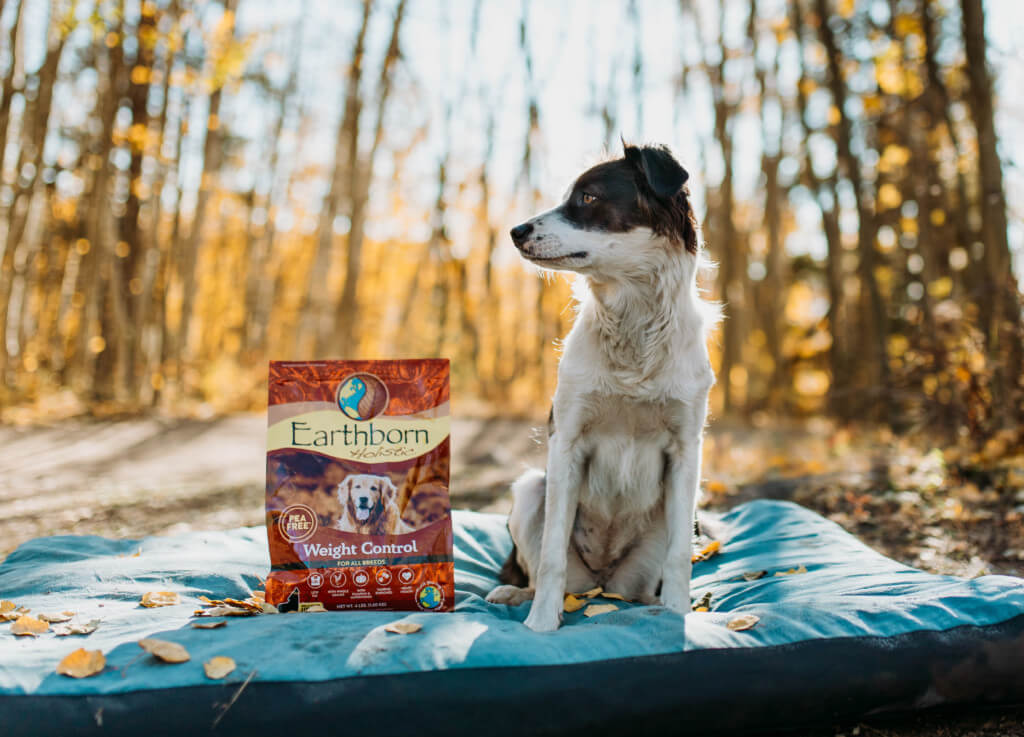
Our Weight Control recipe is a whole grain dog food formula that’s high in protein. Crafted with high quality turkey protein and a superfood blend of nutritious fruits and veggies, this pea free dog food recipe is also very low in fat, making it a great option for weight loss. Pair this holistic dog food recipe with a great weight loss plan and you’ll be well on your way to helping your dog live a healthier lifestyle.

That being said, lack of portion control is the most common culprit of weight gain in dogs. With any dog food, it’s important to make sure you’re not overfeeding your dog and contributing to weight gain by feeding them too much food–even if you’re feeding a weight management dog food. All too often, pet owners strictly use the feeding guidelines on the pet food label to determine how much to feed their dogs when this is a decision best made with the help of your vet using the feeding guidelines as a starting point. Your vet will be able to take into account other factors the feeding guidelines can’t such as environment, activity level, and other health issues to determine the best amount to feed.
Choosing the Right Dog Food
When it comes to choosing the right dog food, we know that the choice can feel super overwhelming. In the end, making the choice between grain inclusive vs grain free dog food, wet vs dry dog food, and any other choice there is to make about your dog’s diet is all up to your own preference.
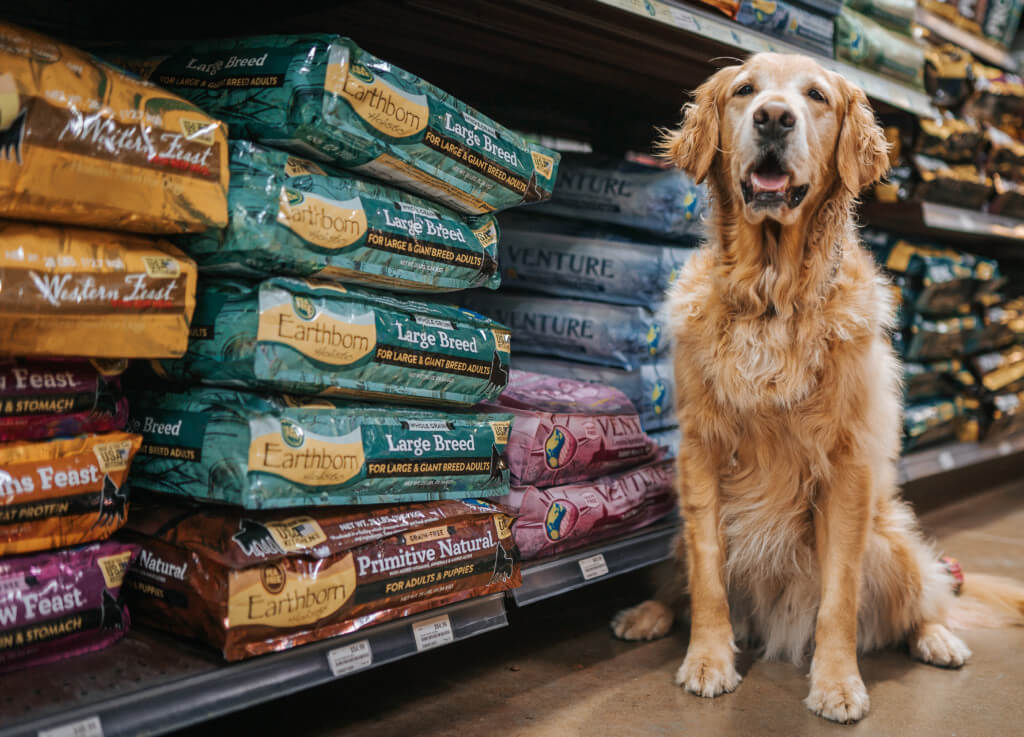
If you’re looking for help choosing an Earthborn Holistic recipe, you can take the quiz on our homepage to get a good starting point. It’s also a smart idea to talk to a vet you trust when choosing your dog’s food, as they’ll be able to help take into account other factors like your dog’s age, environment, and activity level to further narrow down your options. While doing our quiz can give you a great idea of what options you could consider feeding your dog, it doesn’t take into account the whole picture so make sure you talk to your vet to determine what’s best to feed your dog.
In the end, choosing the right dog food is all about what’s best for you and your dog. What works for your neighbor’s dog might not work for your dog and vice versa and that’s totally okay! Making an informed decision about what food you feed your dog is crucial in making sure your dog is getting all the nutrients they need for their specific bodies. All dogs are different and require different nutrition, so no one dog food is a one-size-fits-all solution. Feel free to shop around and try out different types and recipes to find what works best for your furry family member.
